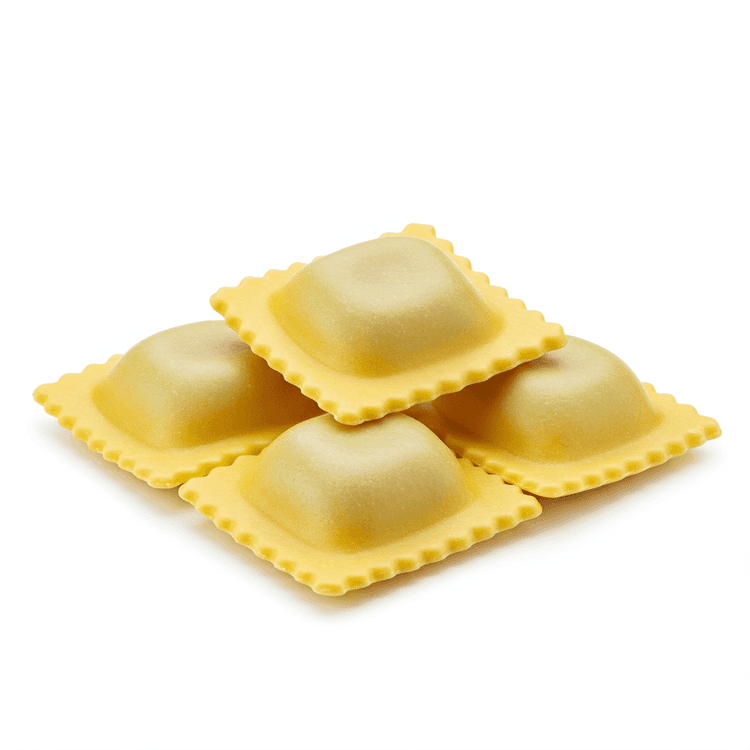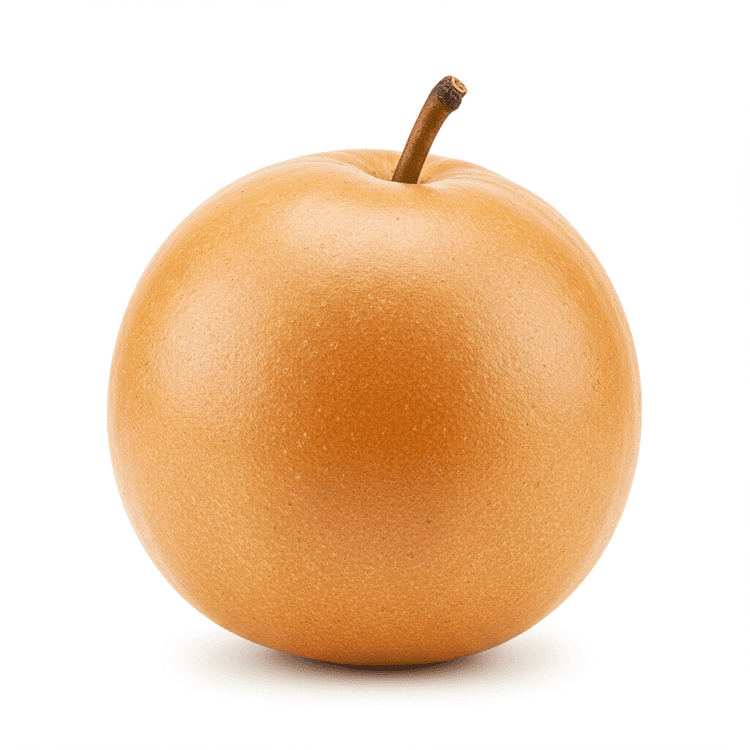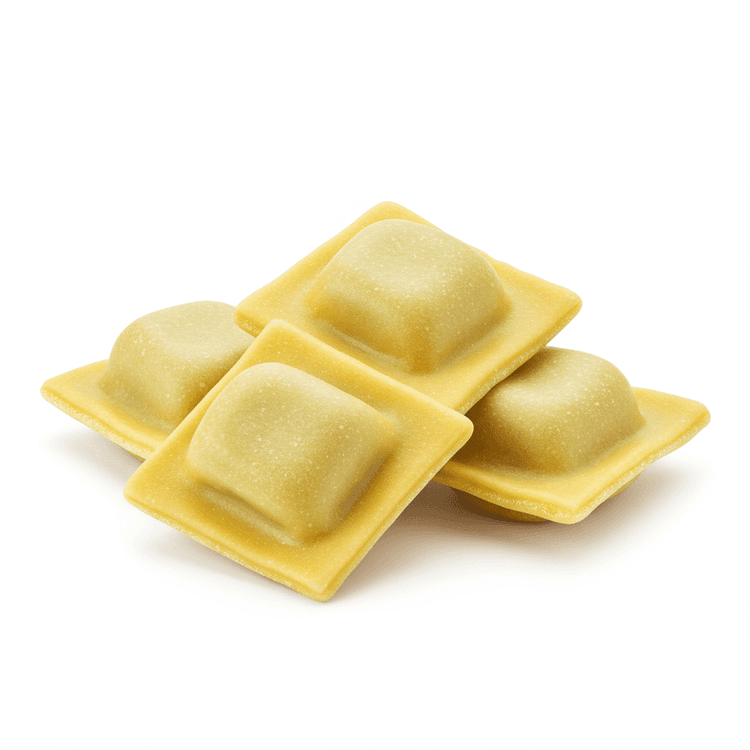
Ravioli
Ravioli, a classic Italian pasta, consists of a filling enveloped in thin layers of egg pasta dough. These small, pillow-shaped parcels can be filled with a variety of ingredients, including cheese (like ricotta, parmesan, or mozzarella), meats (beef, pork, chicken), vegetables (spinach, mushrooms, pumpkin), or seafood (lobster, crab). The texture is delightfully tender, yielding to a burst of flavor from the filling. Ravioli are often served in a simple sauce to highlight their delicate flavor, and they come in various shapes and sizes, sometimes flavored with herbs or spices for added complexity.
Common Uses
- Ravioli are commonly served as a first course or main dish, tossed with a light tomato sauce, pesto, or brown butter sage sauce. The sauce complements the filling and enhances the overall flavor.- Cheese ravioli make a delicious and easy appetizer when deep-fried or pan-fried until golden brown and crispy, then served with a dipping sauce.- Meat-filled ravioli are ideal for baking in a casserole with marinara sauce and cheese, creating a hearty and comforting family meal.- Ravioli can be added to soups for a heartier and more flavorful dish, particularly in brothy vegetable soups or creamy tomato soups.- Large ravioli make a great base for individual plated dishes, can be topped with grilled vegetables and balsamic glaze for a sophisticated vegetarian option.- Lobster ravioli are used in fine dining restaurants as a special treat, often served with a delicate cream sauce or seafood bisque.
Health Benefits
- Provides carbohydrates for energy to fuel daily activities.
- Can be a source of protein, especially when filled with meat, cheese, or legumes.
- May offer vitamins and minerals depending on the filling ingredients, such as iron, calcium, and B vitamins.
- Whole wheat ravioli provides fiber, promoting digestive health and satiety.
- Some varieties are enriched with essential nutrients, contributing to overall dietary intake.
Substitutes
Chefadora AI is here.
Experience smarter, stress-free cooking.
Storage Tips
Fresh ravioli should be refrigerated immediately and used within 2-3 days. Store in its original packaging or an airtight container to prevent drying out. Dried ravioli should be stored in a cool, dry place, like a pantry, in its original packaging or an airtight container. It can last for several months past the 'best by' date. Frozen ravioli should be kept in the freezer until ready to cook; no need to thaw. Ensure the freezer temperature is consistent to prevent freezer burn.
Marnirni-apinthi Building, Lot Fourteen,
North Terrace, Adelaide, South Australia, 5000
Australia


